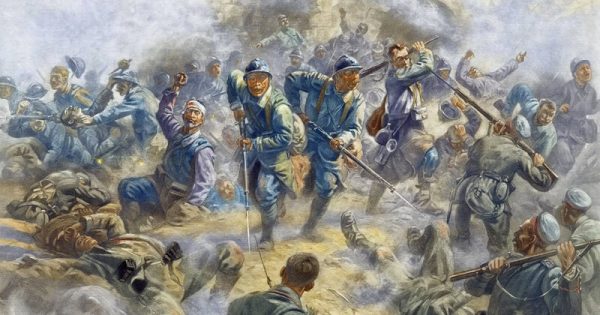
It’s June of 1914, and Archduke Franz Ferdinand, heir to the Austro-Hungarian throne, has arrived in Sarajevo with his wife, Sophie. We know what happens next. Five assassins with ties to the nationalist group the Black Hand stake out the route of the Archduke’s motorcade, wait until the car is in sight, and toss a bomb. The bomb detonates and continues exploding—in one form or another—for the next four years: in Belgium at Liège, in France at the Marne, in East Prussia at Tannenberg, in Turkey at Gallipoli, through Italy, Greece, Arabia, and East Africa, eventually touching most of the inhabited world.
Yes, we know this one already. But what’s often left out is the fact that, though the bomb tossed at the motorcade did explode, it didn’t injure the Archduke. Apparently, he was able to bat the device away like a fly, and continue with his state visit, the plot foiled, the danger passed.
It was only later that day—after his car had taken a wrong turn, after the driver had decided to back up and turn around—that the Archduke and his wife found themselves stalled, by chance, directly in front of Gavrilo Princip, the leader of the assassins, as he stood outside a deli. What must Princip have thought in that moment? Whatever the case, he fished out a revolver and shot the Archduke and his wife. Two months later—again, quite improbably—a war that would leave millions dead and redraw the map of the world began as a result.
“Shallow men believe in luck or in circumstance. Strong men believe in cause and effect,” Emerson famously said. Maybe so, but one can’t help but wonder what the world would look like today if only the Archduke’s luck had held for another few hours, if only chance had been a little more kind.

Leave a Reply